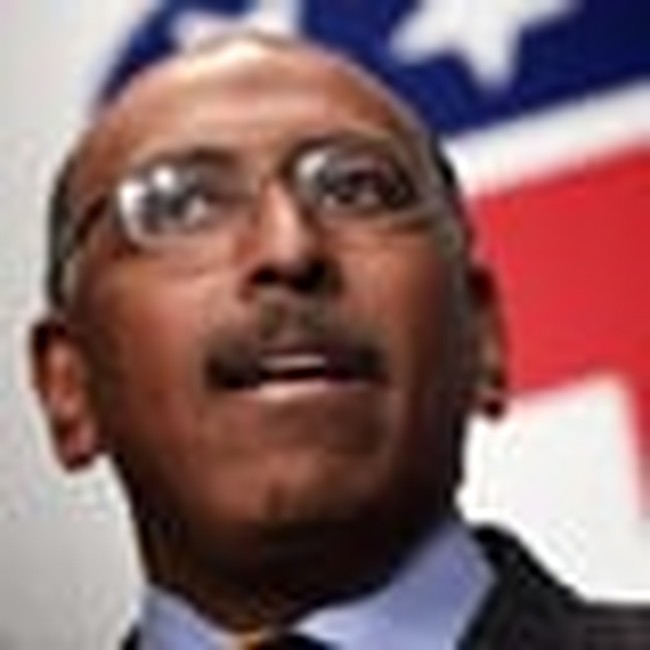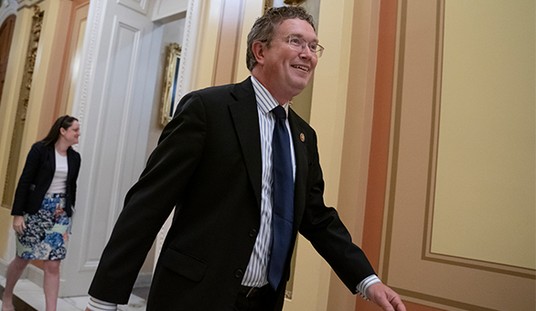On January 20, 2011, the Republican National Committee will choose the man or woman who will lead the Republican Party into the 2012 election cycle. The Republicans will enter that cycle with several built-in advantages and a couple of disadvantages. On the advantages side of the ledger, the Democrats will be defending more seats in the Senate, and thanks to the Bush tax cuts extension, tax rates will be front and center in the political conversation. On the disadvantages side, the Republicans will undergo a very long presidential primary season (the first debates are just five months after the RNC chair election) to face an incumbent in the White House. For all the talk we’re hearing about President Obama facing a primary opponent over his perceived betrayals of the Democrats’ left-wing base, the likelihood of such a challenge materializing and becoming a serious threat remains low. On the advantages side, the Republicans will also pick up a few new House seats in red states thanks purely to the continuing demographic shift toward Texas and Florida, and away from several of the blue states.
The economy and foreign affairs are the largest wild cards as we head into the 2012 cycle. The RNC chairman will also preside over a time when the Republicans will be working to repeal ObamaCare, which a majority of American voters expects, but which will also present its own set of policy and communications challenges.
As I’ve argued before, the RNC chair job is more important than most folks are aware. The chairman’s portfolio consists of three major tasks: fundraising, message, and organization. The first two are self-explanatory, while the third is both less visible and less obvious, while being no less important. The strength and effectiveness of the RNC staff and organization, and of the committee itself, trickles out to the state organizations and candidates. A good chairman really does need to be strong in all three areas to be effective, or needs to be able to find and delegate to others who have those strengths. Steele has come under fire for his conduct in all three areas during his tenure: The RNC raised far less under his watch than in previous years and finished the 2010 cycle reportedly holding $15 million in debt, he frequently gaffed as the party’s top spokesman, and the lack of a serious ground game in the 72 hours leading up to and through the election has been blamed for costing the Republicans seats in 2010. It’s telling that two senior members of Steele’s administration have stepped out to challenge him.
The Republican National Committee has a tough task ahead for January 20. Embattled incumbent chairman Michael Steele faces five major challengers. Though grassroots Republicans and Tea Partiers do not get a direct vote in the RNC election, this election is worth keeping an eye on to see which way the party will go and what sort of strategies it might deploy going into 2012. For example, the Republican Governors Association recently elected Texas Gov. Rick Perry to lead it through the next cycle. Perry is coming off a strong victory over former Houston Mayor Bill White, and Perry pulled off the win via a very unorthodox campaign centered on social media almost to the exclusion of traditional media and campaign strategies. As head of the RGA, Perry can reasonably be expected to bring some of the same strategies to bear on races around the country. Likewise, the next head of the RNC can be expected to put his or her unique ideas to work on behalf of Republicans in 2012.
There isn’t a great deal of ideological daylight between the RNC chairman candidates. All are self-described Reagan conservatives, all oppose President Obama’s agenda, all proclaim that they’re Tea Party friendly, and all have held leadership positions within state GOPs or the RNC, or both. So rather than delve into a discussion of more-conservative-than-thou, I’m going to look at the candidates from the perspective of social media, that being an area of my own background as former communications director for the Texas GOP, where I developed the party’s messaging; was its media spokesman; was a senior manager; led the launch of the party’s web site and built its social media presence on Twitter and Facebook; and deployed email messaging for fundraising and other strategic uses. In my opinion, social media is supplanting traditional media strategies in importanance. Social media has not yet replaced traditional tactics, but it is the future of campaigning. So with that in mind, I’m looking at the candidates to try to answer this question: which candidate seems to have the strongest understanding of social media?
 Michael Steele — the incumbent is the former lt. gov. of Maryland, the first African-American to hold statewide office in that state, and a former candidate for U.S. senator. One of Steele’s largest efforts as RNC chairman concerned the launch of the party’s new web portal, GOP.com. The site’s launch was bumpy, chaotic, and even embarrassing. Since that very rough start, though, GOP.com has become a much more user-friendly site and its online research library has become adept at rapid response. Steele’s own re-election announcement, though, leaves a lot to be desired in both skill and clarity. Michael Steele re-election efforts: Facebook, Twitter.
Michael Steele — the incumbent is the former lt. gov. of Maryland, the first African-American to hold statewide office in that state, and a former candidate for U.S. senator. One of Steele’s largest efforts as RNC chairman concerned the launch of the party’s new web portal, GOP.com. The site’s launch was bumpy, chaotic, and even embarrassing. Since that very rough start, though, GOP.com has become a much more user-friendly site and its online research library has become adept at rapid response. Steele’s own re-election announcement, though, leaves a lot to be desired in both skill and clarity. Michael Steele re-election efforts: Facebook, Twitter.
 Saul Anuzis — former chairman of the Michigan Republican Party, currently working with former House Speaker Newt Gingrich’s American Solutions. Anuzis’ social media efforts have been underway for months, and his website resembles an amalgamation of Facebook status updates and headline tweets, by which I mean that it’s very easy to get a quick snapshot of issues and stories that Anuzis chooses to emphasize by checking his site. The Harley riding hockey dad clearly gets social media. Saul Anuzis on Facebook, Twitter.
Saul Anuzis — former chairman of the Michigan Republican Party, currently working with former House Speaker Newt Gingrich’s American Solutions. Anuzis’ social media efforts have been underway for months, and his website resembles an amalgamation of Facebook status updates and headline tweets, by which I mean that it’s very easy to get a quick snapshot of issues and stories that Anuzis chooses to emphasize by checking his site. The Harley riding hockey dad clearly gets social media. Saul Anuzis on Facebook, Twitter.
 Reince Priebus — Preibus was the RNC’s general counsel until December 2010, when he resigned to announce his candidacy for RNC chairman. Priebus is one of two who worked inside Steele’s administration and are now challenging him (Gentry Collins being the other). Priebus is the chairman of the Wisconsin Republican Party, a party that enjoyed major gains across the state in the 2010 elections. That tells me that Preibus knows a thing or two about advancing the conservative cause in a blue state, albeit in a terrible year for Democrats nationwide. Priebus has no campaign web site so far, and ironically a Google search for such a site yields a “Saul Anuzis for RNC Chair” paid ad at the top. Reince Priebus on Facebook, Twitter.
Reince Priebus — Preibus was the RNC’s general counsel until December 2010, when he resigned to announce his candidacy for RNC chairman. Priebus is one of two who worked inside Steele’s administration and are now challenging him (Gentry Collins being the other). Priebus is the chairman of the Wisconsin Republican Party, a party that enjoyed major gains across the state in the 2010 elections. That tells me that Preibus knows a thing or two about advancing the conservative cause in a blue state, albeit in a terrible year for Democrats nationwide. Priebus has no campaign web site so far, and ironically a Google search for such a site yields a “Saul Anuzis for RNC Chair” paid ad at the top. Reince Priebus on Facebook, Twitter.
 Maria Cino — the New York State native has held several national posts, including Executive Director of the National Republican Congressional Committe and RNC Deputy Chairwoman, both during victorious years for Republicans. Cino was also president and CEO of the 2008 GOP convention in St. Paul, MN and currently works for the American Action Network, and in connection with that, the Hispanic Leadership Network, a center-right Hispanic outreach effort. She has the backing of the entire New York state GOP leadership. Maria Cino on facebook, twitter.
Maria Cino — the New York State native has held several national posts, including Executive Director of the National Republican Congressional Committe and RNC Deputy Chairwoman, both during victorious years for Republicans. Cino was also president and CEO of the 2008 GOP convention in St. Paul, MN and currently works for the American Action Network, and in connection with that, the Hispanic Leadership Network, a center-right Hispanic outreach effort. She has the backing of the entire New York state GOP leadership. Maria Cino on facebook, twitter.
 Gentry Collins — the Iowa native was the RNC’s political director until he resigned in Nov 2010, blasting chairman Steele in a scathing letter detailing the RNC’s woeful financial issues. According to Collins, who as political director was in a position to know, the GOP left at least two U.S. Senate seats in Democratic hands due to its financial problems, which he attributes to Steele’s leadership. Collins has also blasted Steele’s handling of the RNC’s donor base. Gentry Collins on Facebook, Twitter.
Gentry Collins — the Iowa native was the RNC’s political director until he resigned in Nov 2010, blasting chairman Steele in a scathing letter detailing the RNC’s woeful financial issues. According to Collins, who as political director was in a position to know, the GOP left at least two U.S. Senate seats in Democratic hands due to its financial problems, which he attributes to Steele’s leadership. Collins has also blasted Steele’s handling of the RNC’s donor base. Gentry Collins on Facebook, Twitter.
 Ann Wagner — Wagner is currently the Missouri Republican Party chairman, and is thus one of two active state chairs challenging Steele. Wagner has scooped up the endorsement of former U.S. Ambassador to the UN John Bolton. Her website, here, is user friendly, putting her impressive bio front and center. Wagner has served as an ambassador, has chaired a successful campaign for U.S. Senate, and overseen a state GOP. Ann Wagner on Facebook, Twitter.
Ann Wagner — Wagner is currently the Missouri Republican Party chairman, and is thus one of two active state chairs challenging Steele. Wagner has scooped up the endorsement of former U.S. Ambassador to the UN John Bolton. Her website, here, is user friendly, putting her impressive bio front and center. Wagner has served as an ambassador, has chaired a successful campaign for U.S. Senate, and overseen a state GOP. Ann Wagner on Facebook, Twitter.
Chairman Steele is obviously the easiest of the candidates to find online, both for good and ill. Of the challengers, Anuzis, Cino, and Wagner seem to have the most robust social media efforts so far. Priebus and Collins got later starts, resigning from the RNC within a couple of weeks of each other before announcing their candidacies.
Rating all of the challengers’ online efforts is by nature subjective, but pressed to do so, Anuzis’ effort strikes me as the most developed and organized of the group. His web site, Facebook, and Twitter are professional, synced up, and easy to find, and through his targeted Google ads he’s invading the searches of the other candidates. Wagner’s effort is also strong. Cino’s emphasis on reaching Hispanic voters shows that she’s not only aware of the demographic challenge ahead of the GOP, she’s stepping forward to do something visible and constructive to address it.
For those interested in the alliances each candidate would bring to the job, Anuzis has the connection with Newt Gingrich that I noted above. Collins has been associated both with Sen. John McCain and former Massachusetts Gov. Mitt Romney. Ann Wagner is a Bush 43 appointee. Maria Cino has former VP Dick Cheney’s backing. And Reince Priebus has been endorsed by Mississippi RNC committeeman Henry Barbour, nephew of former RNC chair and current Mississippi Gov. Haley Barbour.









Join the conversation as a VIP Member